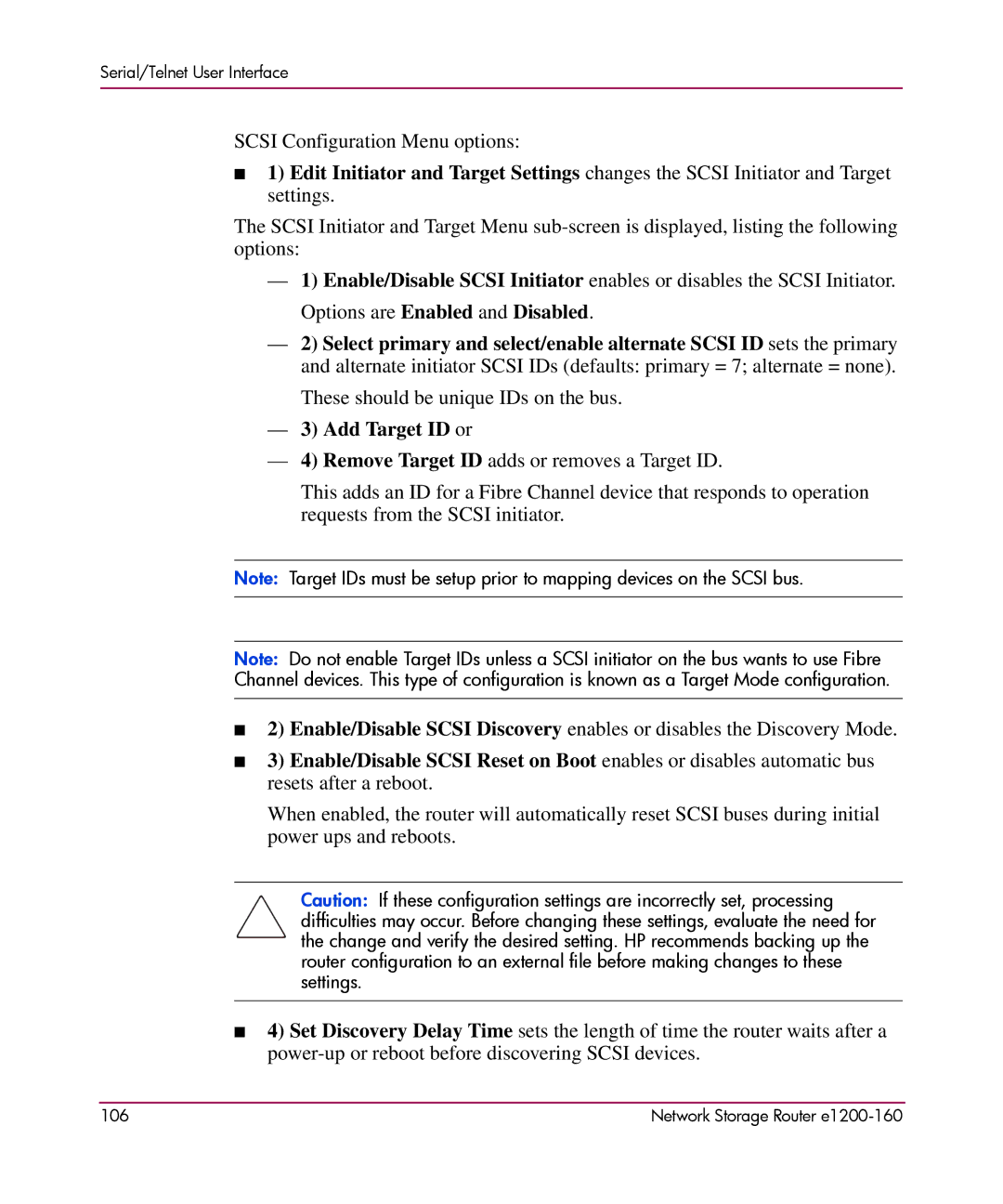
Serial/Telnet User Interface
SCSI Configuration Menu options:
■1) Edit Initiator and Target Settings changes the SCSI Initiator and Target settings.
The SCSI Initiator and Target Menu
—1) Enable/Disable SCSI Initiator enables or disables the SCSI Initiator. Options are Enabled and Disabled.
—2) Select primary and select/enable alternate SCSI ID sets the primary and alternate initiator SCSI IDs (defaults: primary = 7; alternate = none).
These should be unique IDs on the bus.
—3) Add Target ID or
—4) Remove Target ID adds or removes a Target ID.
This adds an ID for a Fibre Channel device that responds to operation requests from the SCSI initiator.
Note: Target IDs must be setup prior to mapping devices on the SCSI bus.
Note: Do not enable Target IDs unless a SCSI initiator on the bus wants to use Fibre Channel devices. This type of configuration is known as a Target Mode configuration.
■2) Enable/Disable SCSI Discovery enables or disables the Discovery Mode.
■3) Enable/Disable SCSI Reset on Boot enables or disables automatic bus resets after a reboot.
When enabled, the router will automatically reset SCSI buses during initial power ups and reboots.
Caution: If these configuration settings are incorrectly set, processing difficulties may occur. Before changing these settings, evaluate the need for the change and verify the desired setting. HP recommends backing up the router configuration to an external file before making changes to these settings.
■4) Set Discovery Delay Time sets the length of time the router waits after a
106 | Network Storage Router |
